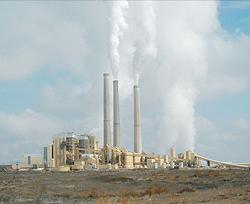 美國與加拿大地方政府9月底公佈一項基於區域性市場的「總量管理與交易」(cap-and-trade)計畫,希望在2020年之前使溫室氣體排放量減少15%以上(以2005年為基準)。 這項計畫由「西部氣候行動」聯盟(Western Climate Initiative, WCI)的在2008年9月23日宣佈,受到環保團體的支持,卻也受到來自燃煤產業的抨擊。WCI的成員表示,這項計畫期望能夠鼓勵新興綠色科技的發展,協助環保能源經濟穩健發展,並對減少對進口石油的依賴。
美國與加拿大地方政府9月底公佈一項基於區域性市場的「總量管理與交易」(cap-and-trade)計畫,希望在2020年之前使溫室氣體排放量減少15%以上(以2005年為基準)。 這項計畫由「西部氣候行動」聯盟(Western Climate Initiative, WCI)的在2008年9月23日宣佈,受到環保團體的支持,卻也受到來自燃煤產業的抨擊。WCI的成員表示,這項計畫期望能夠鼓勵新興綠色科技的發展,協助環保能源經濟穩健發展,並對減少對進口石油的依賴。
總量管理與交易計劃,藉由減少溫室氣體的排放,促進環境永續性與經濟成長,這是美加地方政府官員共同努力促成的結果。
參與這項計畫的政府包含美國的七個州:亞歷桑那州、加州、蒙大拿州、新墨西哥州、奧勒崗州、猶他州、華盛頓特區州;以及加拿大的四個省:西部的卑詩省、曼尼托巴省和東部的安大略省、魁北克省。這七州四省代表加拿大超過七成與美國約兩成的經濟能力。
這項減碳計畫適用於該區域近九成的排放源,包括電力、工業、運輸,以及家庭與商用燃料。
該項計畫將規定氣體排放的限度以減少污染,接著讓市場找出符合排放限制最划算的方式。
在與相關企業團體研討商議後,這些州(省)政府提出以下建議:減少空氣汙染源、能源使用多元化,並在推動經濟、環境、公共衛生目標的同時,避免造成局部、不均衡的環境或經濟衝擊。
WCI的政府部門也同意從2011年起開始,對上一年度的排放情況提出報告。
第一階段的總量管理計畫將於2012年1月1日起實施,為期三年。第二階段將於2015年開始,此時計畫內容將延伸至運輸用燃料,以及在第一階段未包含的家庭、商業、工業用燃料。
環保人士對此表示滿意,但提醒計畫仍有許多細節不明,包括汙染製造者的排放配額是否免費,或是以拍賣的方式出售配額,收入則用於公益。
這次公佈的協議,要求各州在2020年之前必須將至少25%的配額以拍賣的方式售出,並鼓勵多多益善。
奧勒崗環保協會(Environment Oregon)的支持者包曼(Jeremiah Baumann)表示:「對付全球暖化最聰明又最省錢的辦法,就是讓企業為他們所製造的每一噸污染物付費,並利用這份收益來緩和邁向綠色能源經濟的過渡期。」
關於WCI對排放交易的建議,請按此參閱。
The Western Climate Initiative governments today announced the design of their new regional market-based cap-and-trade program. The emissions trading program is intended to reduce climate-changing greenhouse gas emissions by 15 percent below 2005 levels by 2020.
The program recommendations met with support from environmental groups and criticism from the coal industry.
The WCI partners say the program is expected to encourage growth in new green technologies, help build a strong clean energy economy, and reduce dependence on foreign oil.
The cap-and-trade program is one element of a regional effort by the governors and premiers of U.S. states and Canadian provinces to promote environmental sustainability and economic growth by reducing greenhouse gas emissions
The partner governments include seven U.S. states: Arizona, California, Montana, New Mexico, Oregon, Quebec, Utah, and Washington; and four Canadian provinces: British Columbia and Manitoba in the west, and Ontario and Quebec in the east. Together, the seven states and four provinces represent over 70 percent of the Canadian economy and 20 percent of the U.S. economy.
The carbon reduction strategy will cover nearly 90 percent of the region's emissions, including those from electricity, industry, transportation, and residential and commercial fuel use.
The cap-and-trade program will require emitters to cut their pollution by setting a limit, or cap, on emissions and then allowing the market to identify the least costly ways to achieve the limit.
Through collaboration and consultation with stakeholders, the partner governments decided to recommend reducing air pollutants, diversifying energy sources, and advancing economic, environmental, and public health objectives while avoiding localized or disproportionate environmental or economic impacts.
The Western Climate Initiative partner governments have agreed to begin reporting emissions in 2011 for emissions that occur in 2010.
The first phase of the cap-and-trade program will begin on January 1, 2012, with a three-year compliance period.
The second phase will begin in 2015, when the program is expanded to include transportation fuels and residential, commercial and industrial fuels not already covered in the first phase.
Environmentalists were pleased, but warned that many details have yet to be worked out, including whether emissions allowances are given to polluters for free, or whether they are auctioned off with the revenues spent in the public interest.
The agreement unveiled today requires that, at least, 25 percent of the allowances be auctioned by 2020 and encourages states to go further.
"The smartest, cheapest way to tackle global warming is to make companies pay for every ton of pollution and use the revenue to ease the transition to a clean energy economy," said Jeremiah Baumann, an advocate for Environment Oregon.
To read the Western Climate Initiative emissions trading recommendations, click here.




